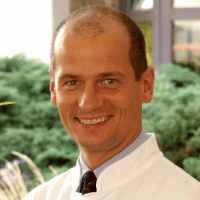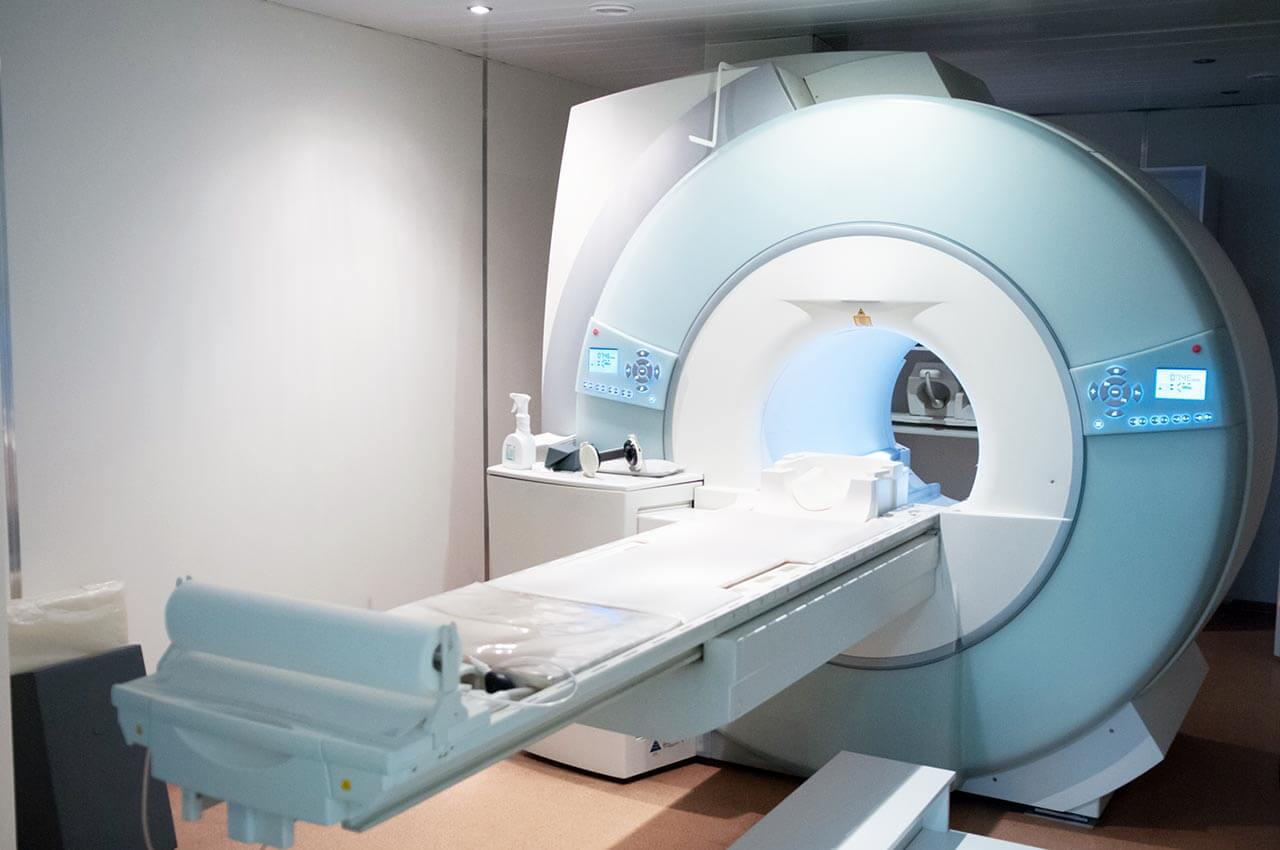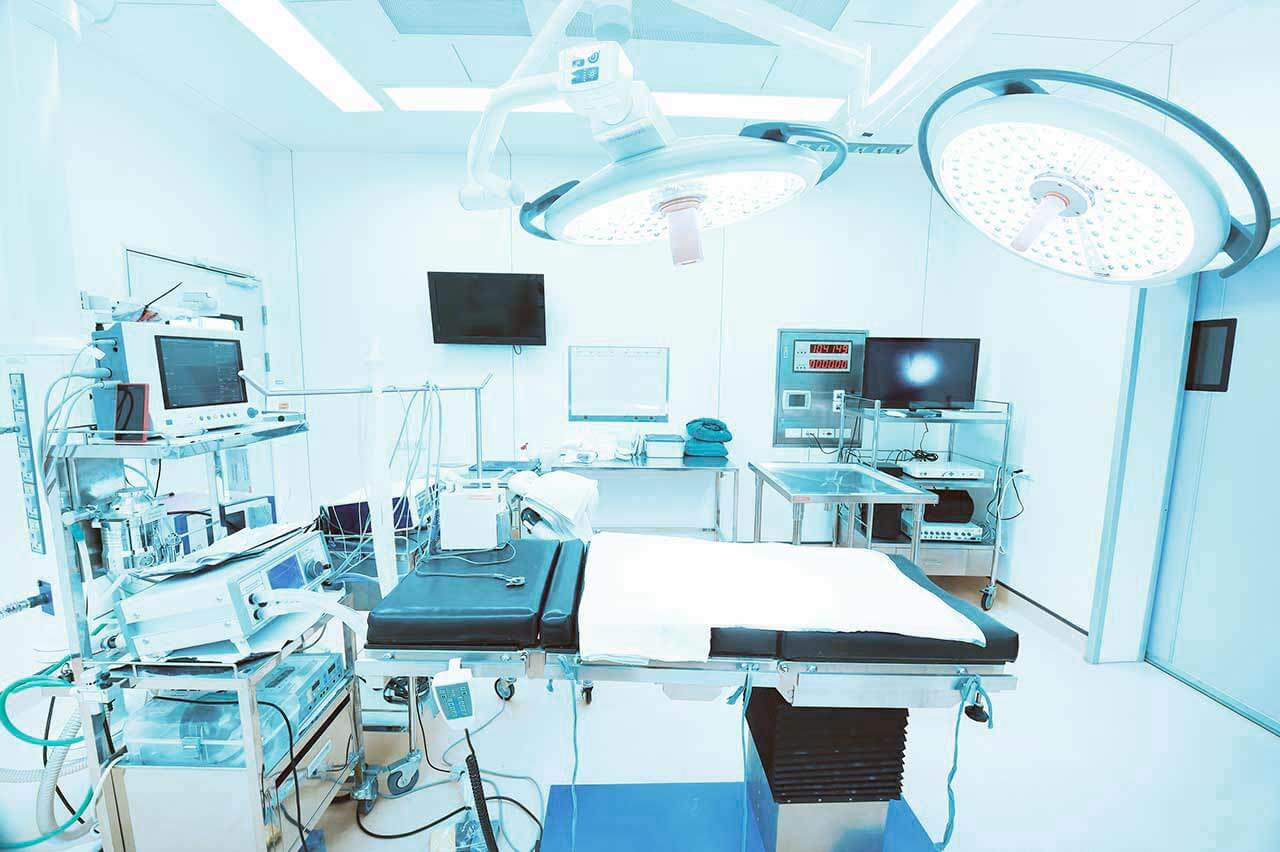
The program includes:
- Initial presentation in the clinic
- clinical history taking
- physical examination
- review of medical records
- laboratory tests:
- complete blood count
- general urine analysis
- biochemical analysis of blood
- TSH-basal, fT3, fT4
- indicators of inflammation (CRP, ESR)
- indicators blood coagulation
- abdominal ultrasound
- CT/MRI abdomen
- abdominal ultrasound
- gastroscopy with biopsy
- analysis on the hp (helicobacter pylori)
- preoperative care
- surgical excision of stomach polyps
- microscopic examination
- symptomatic treatment
- control examinations
- the cost of essential medicines and materials
- nursing services
- nutrition recommendations
- full hospital accommodation
- explanation of future recommendations
Required documents
- Medical records
- Esophagogastroduodenoscopy (EGD) (if available)
Service
You may also book:
 BookingHealth Price from:
BookingHealth Price from:
About the department
The Department of Pediatric Surgery and Pediatric Urology at the University Hospital Tuebingen offers the full range of services in these medical fields. It serves young patients of different age groups, ranging from newborns to adolescents under the age of 16 years. The department is headed by Prof. Dr. med. Jörg Fuchs.
The department widely uses modern minimally invasive interventions that play a crucial role in various diseases and malformations. The basis of the department’s work is interdisciplinary cooperation with other departments of the hospital and other medical institutions at the national level. In addition, the department has gained a reputation as an Expert Center for the treatment of tumors of the liver, kidneys, neuroblastomas and soft tissue sarcomas.
The service range of the department includes:
- General pediatric surgery
- Appendix removal
- Hernia repair (inguinal, umbilical hernia)
- Hydrocele treatment
- Correction of undescended testicles
- Phimosis treatment
- Minimally invasive surgery (more than 600 interventions per year)
- Correction of congenital malformations in the chest and abdomen (liver, gallbladder, appendix, rectum)
- Correction of malformations of the urological spectrum
- Treatment of oncological neoplasms (certain tumors)
- Neonatal surgery
- Esophageal atresia
- Abdominal wall defects (gastroschisis, omphalocele)
- Diaphragmatic hernia
- Lung malformations
- Surgical treatment of short bowel syndrome and chronic intestinal failure
- Endocrine surgery
- Treatment of benign and malignant thyroid diseases
- Treatment of disorders of sexual differentiation (intersexuality, adrenogenital syndrome)
- Treatment of benign and malignant diseases of the adrenal glands
- Surgical correction of anorectal malformations (diseases and malformations of the intestine, anus)
- Anal atresia
- Cloacal exstrophy
- Hirschsprung’s disease
- Hepatobiliary surgery
- Choledochal cyst
- Biliary atresia
- Cholelithiasis
- Shunting (in portal vein thrombosis)
- Liver tumors and metastases
- Thoracic surgery
- Lung malformations
- Esophageal atresia
- Diaphragmatic hernia
- Lung tumors and metastases
- Chest wall deformities (funnel-shaped, keeled chest)
- Cancer surgery
- Kidney tumors
- Liver tumors
- Neuroblastomas
- Rhabdomynosarcomas
- Soft tissue sarcomas
- Germ cell tumors
- Minimally invasive surgery
- Cytoreductive surgery and subsequent intraoperative intraperitoneal hyperthermic chemotherapy (HIPEC)
- Brachytherapy for bladder, prostate rhabdomyosarcoma
- Trauma surgery
- Soft tissue lesions (lacerations, cuts, bruises, ligament sprains)
- Bone and joint lesions (fractures and dislocations)
- Soft tissue and bone inflammation after injury
- Impaired bone healing or incorrect position of bones after fractures
- Spinal and pelvic injuries
- Head and brain injuries
- Thoracic and abdominal injuries
- Burns, including steam burns
- Polytrauma and injuries of high severity
- Surgical treatment of benign bone lesions
- Bone cysts
- Exostoses
- Bone fibroids
- Osteoid osteoma
- Correction of hand, foot malformations
- Polydactyly
- Syndactyly
- Congenital annular ligament stenosis
- Pediatric urology
- Hypospadias
- Epispadias
- Urinary tract stenosis
- Cystic ureteral reflux
- Double kidney
- Bladder dysfunction
- Bladder exstrophy
- Cloacal exstrophy
- Spina bifida, meningomyelocele
- Cystoplasty
- Kidney tumors
- Abnormal testicle position
- Phimosis
- Disorders of sexual differentiation
- Other medical services
Curriculum vitae
Since 2002, Prof. Dr. med. Jörg Fuchs has been a full-time Professor of Pediatric Surgery at the University Hospital Tuebingen. From 1983 to 1989 he studied Human Medicine at the Humboldt University in Berlin. After receiving a diploma and doctoral thesis defense in 1989, the doctor began his professional training in Pediatric Surgery at the Carl Gustav Carus University Hospital in Dresden. Subsequently, he continued his studies at the Hannover Medical School and completed it in 1997. In the same year, he began working as a Specialist in Pediatric Surgery at the Hannover Medical School, while in 1998 he was appointed as a Senior Physician. Then he was offered to occupy the position of C4 Professor at the University Hospital Tuebingen. Also, in 2007, the doctor was offered a position at the Charité Hospital, but he declined the offer.
From 2010 to 2013, Prof. Jörg Fuchs was the President of the German Society of Pediatric Surgery (DGKCH). On July 1, 2017, he became the President of the German Society of Surgery (DGCH). His research interests include cancer and minimally invasive surgery, as well as oncological studies of solid tumors in children.
Photo of the doctor: (c) Universitätsklinikum Tübingen
About hospital
According to the prestigious medical publication Focus, the University Hospital Tuebingen ranks among the top five German hospitals!
The hospital was founded in 1805, therefore it is proud of its long history, unique experience, and outstanding achievements in the field of medical care, as well as research and teaching activities. Nowadays, it is one of the most advanced medical institutions, which provides a wide range of general and highly specialized medical services. The hospital combines the state-of-art medical technologies in the field of diagnostics and the very latest treatment methods of a wide range of diseases.
The hospital has 17 specialized departments, which cover almost all fields of modern medicine and contribute to the top-class medical service in Germany. It treats about 367,000 outpatients and 74,000 inpatients annually. This testifies to the high authority of the hospital at the national and international medical arena. This is the first German hospital, which confirmed the high quality of healthcare and the effectiveness of service with a KTQ certification (in 2009).
Photo: (с) depositphotos
Accommodation in hospital
Patients rooms
The patients of the University Hospital Tuebingen live in comfortable single and double rooms with an ensuite bathroom equipped with a shower and toilet. The beds in the patient rooms are equipped with orthopedic mattresses that promote good and full sleep. There is a TV in the room, and it is also possible to connect a smartphone or laptop to the Internet. In addition, there is enough space in the patient room to receive 2-3 guests without inconvenience for the second patient.
The enhanced-comfort rooms include a hairdryer, heated towel rail, a large mirror, a direct dial telephone, a flat-screen satellite TV, a writing desk, free Internet access, a mini-bar and a refrigerator.
Meals and Menus
The patients of the hospital are offered tasty and healthy three meals a day: breakfast, lunch and dinner. Breakfast is served as a buffet, while for lunch and dinner there is a choice of several menus. Also, if desired, the patient will be provided with an individual menu. There are several cafes and cafeterias on the territory of the hospital, where one can have a tasty meal or enjoy a cup of coffee, tea and dessert.
Further details
Standard rooms include:
Religion
Religious services are available upon request.
Accompanying person
During the inpatient program, an accompanying person can stay with you in a patient room or in a hotel of your choice.
Hotel
During the outpatient program, you can stay in a hotel of your choice. Our managers will help you choose the most suitable option for you.




